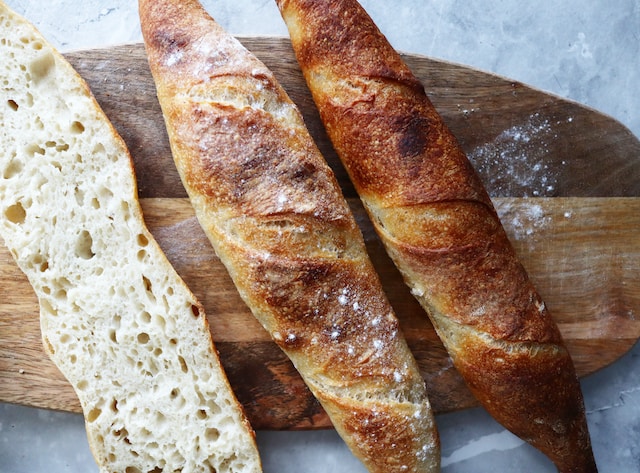Are you a food producer in Indiana looking to start your own business? If so, you need to be aware of Indiana cottage food laws. Unlike other states, Indiana does not have cottage food laws persay, but it does allow individuals to produce certain non-potentially hazardous food products from their home kitchen. The state refers to these individuals as “home-based vendors” (HBV). Home-based vendors may only sell food directly to consumers at farmer’s markets or roadside stands.
Note: We may refer to ‘cottage law’ in this article to help those who are searching for information on how to sell food from home in Indiana.
What are non-potentially hazardous foods?

Non-potentially hazardous foods that home-based vendors can sell include:
- Baked items, such as cookies, cakes, fruit pies, cupcakes, bars, yeast breads, fruit breads, baguettes (no crème pies, no pumpkin pies)
- Candy and confections, such as caramels, chocolates, fudge, peanut brittle,
chocolate-covered fruits, bonbons, buckeyes, chocolate-covered nuts - Produce, such as unprocessed fruits and vegetables (i.e) cherries, blackberries,
cranberries, grapefruit, strawberries, oranges, blueberries, plums, tomatoes - Tree nuts, legumes
- Pickled cucumbers processed in a traditional method (no vinegar or acidifier added
and open containers) - In-shell chicken eggs (with Egg Board license and labeling)
- Some rabbit and poultry. Farmers must process rabbits on-site at the farm and sell them frozen. You can sell up to 1,000 frozen birds.
- Honey, molasses, sorghum, maple syrup
Labeling Requirements for HBV Food
You must label the food you produce for sale in your home kitchen with the following:
- The name and address of the producer of the food product
- The common or usual name of the food product
- The ingredients of the food product, in descending order by predominance by
weight - The net weight and volume of the food product by standard measure or
numerical county - The date you processed the food product
- The following statement in at least 10-point font, “The product is home
produced and processed and the production area has not been inspected by
the State Department of Health.”
Other Indiana Cottage Food Requirments

Depending on the products you wish to sell, there may be additional specific requirements for your home food business.
The most important restriction to remember is that you may not sell food directly from your home. You may only sell what you make at home at a farmer’s market or roadside stand.
While you can list a menu on your website, social media, or in your Airmart shop, all transactions must take place in person. Deliveries are not allowed.
For more information, check out the Home-based Vendor Guide here.
Start sharing your products for pickup with a free Airmart shop: